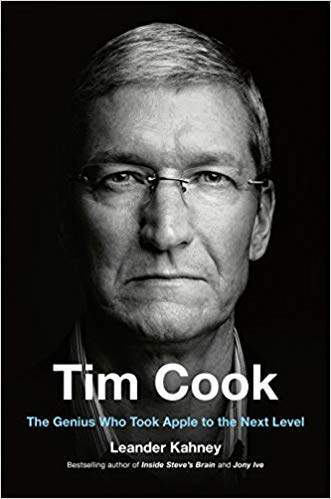
Leander Kahney’s biography does little to dispel Tim Cook’s ‘boring but good’ image, writes Rasika Sittamparam
Tecnophobes and non-Mac users should be aware that the only biography available of Tim Cook, Apple’s CEO, is told through the lens of an Apple-watcher familiar with the company’s myriad products, updates and bug fixes. Author Leander Kahney runs the Cult of Mac, a website that acts as a newswire on all things Apple.
With two decades’ worth of insight, authority and access to many current and former employees at Apple, Kahney has unusually omitted interviews with Cook himself. Perhaps there has been extensive quality control to protect Apple’s trillion-dollar valuation. The author describes Cook as a solo character who grazes on energy bars and replies to emails at 3-4am, usually before or after a workout.
Apple still helped Kahney gather enough material to sing Cook’s praises. The author, almost dutifully, extols his precision of mind and the soft touch approach he exercised – a complete contrast to the late Steve Jobs. From the start, there are juxtapositions of the belligerent genius of Jobs against the calm competence of Cook. The book starts with Jobs choosing Cook as CEO over the more interesting Jony Ive while nearing death. You are compelled to read further to find out why.
Chapter two recognises the Cook as the ‘hometown hero’ of Robertsdale, the small town in Alabama he grew up in. But not many see the globalised CEO as such. Kahney discovers locals’ criticism of Apple’s lack of presence in the town. This, we know, is personal: the openly gay Cook is still troubled by the racism of his neighbourhood, having witnessed a KKK member cross-burning in front of a black family’s house – an account many residents still dispute.
We then start to learn about Cook’s uncanny ability to transform Apple’s operations. There are rare revelations of kinks in its process and the wastage Jobs accrued due to the rise of PCs. The highlight of the book is the account of Cook’s fearlessness against the FBI, as told by Bruce Sewell, who was Apple’s general counsel at the time. He reveals that there had been government interest in ‘getting access to phones on a mass basis’, even before the San Bernardino shooting which triggered the crackdown on the iOS’s security features.
While the book tries make Cook appealing despite his lacklustre public persona, instead it tails off into PR-like prose. You learn everything of the CEO’s operational success, but you end up knowing very little about what makes him tick. That, unfortunately for Kahney, reinforces the very boring-but-good image he tries to protect his subject from.






